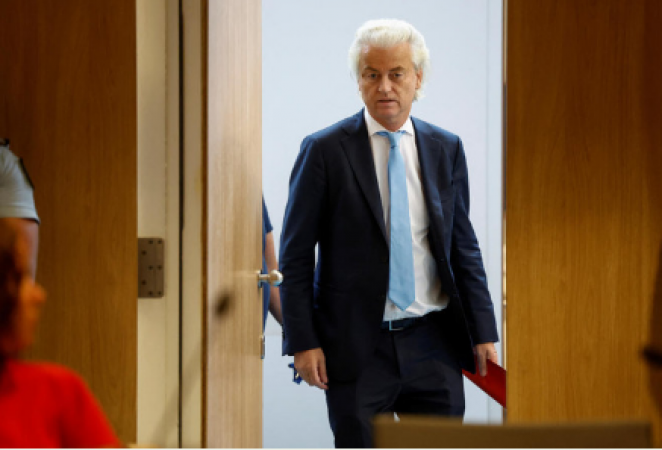
Badhoevdrop, The Netherlands: Former Pakistani cricketer Mohammad Latif finds himself in the midst of a trial in the Netherlands, facing accusations of threatening a Dutch Member of Parliament (MP).
Latif, who had a notable cricket career with 16 Tests and 28 ODIs for Pakistan, stands accused of sending threatening messages to Geert Wilders, a prominent far-right politician known for his anti-Muslim views.
The allegations stem from messages sent in 2020, which contained explicit threats to kill Wilders and his family. The trial has put the spotlight on the delicate balance between free speech and hate speech, while also raising questions about accountability in the digital age.
Also Read: Praggnanandhaa Welcomed in Chennai After FIDE World Cup Silver"
Latif, however, firmly denies the charges, asserting that he did not send the threatening messages. He claims that his account was hacked and maliciously used by an unidentified third party.
This has added a layer of complexity to the case, as the prosecution seeks to establish the veracity of his claims while assessing the evidence at hand.
As the trial unfolds, a verdict is expected in the coming weeks, potentially carrying significant consequences for both Latif and Wilders. If Latif is convicted, he could face a maximum sentence of up to five years in prison, a substantial blow to his personal and professional reputation.
On the other hand, the trial sets a crucial precedent for the handling of threats against politicians, notably those who occupy polarizing positions.
Also Read: White House Raises Questions about Kremlin's Role in Russian Oligarch's Death
The trial holds significance not only for the individuals involved but also for the broader realms of free speech and political discourse. In the Netherlands, the case serves as a litmus test for the country's unwavering commitment to free expression.
Wilders, despite his contentious stances, is protected by the right to voice his opinions. Consequently, the outcome of the trial could set a significant precedent for future cases involving the interplay between free speech and hate speech.
In Pakistan, where Latif hails from, the case has triggered mixed reactions. While some segments of society have expressed support for Latif, framing his actions as a defense of Islam against Wilders's inflammatory rhetoric, others contend that the gravity of the threats necessitates proper legal accountability.
This divergence of opinion reflects the broader global struggle to navigate the boundaries of free speech in the digital age, where online platforms can amplify messages and provoke real-world consequences.
Beyond the individual actors in this legal drama, the trial underscores the multifaceted challenges posed by online harassment and threats. The ease with which digital platforms can be exploited for malicious purposes is a stark reminder of the importance of cybersecurity and vigilant digital hygiene.
Additionally, the blurred lines between personal responsibility and external manipulation prompt a reevaluation of how legal systems must adapt to address the complexities of digital communication.
As the trial progresses, it provides an opportunity to contemplate the broader implications of the case. The tensions between personal accountability, the right to free speech, and the real-world consequences of online actions weigh heavily on the judicial process.
Regardless of the verdict, the trial serves as a reminder that the virtual realm can have tangible effects on individuals' lives and society at large.
Also Read: New York City Judge Rules in Favor of Public Broadcast of Muslim Call to Prayer
The ongoing trial of former Pakistani cricketer Mohammad Latif for threatening a Dutch MP underscores the complexities of navigating free speech, accountability, and digital communication.
The case carries implications for both the individuals involved and the broader issues of political discourse and cybersecurity. As the legal process unfolds, it prompts contemplation on the evolving nature of public expression in the digital age and the responsibilities that come with it.